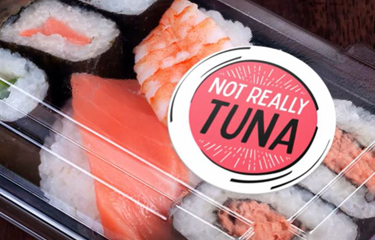Nearly half of seafood samples in restaurants and grocery stores in four major Canadian cities were mislabeled, according to a new Oceana Canada report.
The NGO found that 46 percent of seafood samples it took in Halifax, Montreal, Ottawa, and Toronto were mislabeled. The results of Oceana Canada’s latest seafood fraud investigation are part of a national, multi-year DNA testing study.
“These results demonstrate yet again that Canada has a pervasive and unchecked seafood fraud problem, putting Canadians, honest fishers, ocean ecosystems, and our seafood economy at risk,” Oceana Canada said in a press release.
Oceana Canada urged the government to take action on the problem.
“Boat-to-plate traceability would protect Canadian consumers, honest fishers, and vulnerable fish populations, and help Canada’s seafood industry maintain access to global markets – some of which already demand stronger traceability,” Oceana Canada Seafood Fraud Campaigner Sayara Thurston said.
While the Canadian government committed to implementing a boat-to-plate seafood traceability system in 2019, which would bring Canada more in line with widely accepted global best practices, it has not put forward a plan or timeline for doing so, according to Oceana Canada.
The mislabeling rate among retailers was 6.5 percent, lower than the 25 percent combined average from Oceana Canada’s previous studies. The mislabeling rate among restaurants increased from 56 percent to 65 percent.
Oceana Canada’s research found 10 instances where products labeled as butterfish or tuna were escolar. Of the 13 samples labeled snapper, seven were tilapia. And 24 of the samples of butterfish, yellowtail, and white tuna were mislabeled.
“Because of Canada’s opaque seafood supply chains, retailers and restaurants can themselves be victims of fraud, and even correctly labeled products could have been fished illegally or unknowingly sourced from forced labor,” Oceana Canada said.
The majority of Canadians also support traceability, it added. New market research conducted by Abacus Data for Oceana Canada found that 87 percent are concerned about purchasing seafood that is mislabeled, up from 76 percent in 2020, and 86 percent are concerned about the government’s failure to address seafood mislabeling and illegal fishing in Canada.
“Seafood is a high-risk product for food fraud; this includes mislabeling, but also illegal products making their way into supply chains,” Thurston said. “Seafood is one of the most highly traded food commodities in the world, and complex supply chains can mask illegal fishing, seafood fraud, human rights abuses and cost millions in tax revenue lost from the legitimate economy.”
Photo courtesy of Oceana Canada







